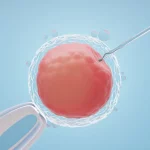
In recent years, egg freezing has gained popularity as a fertility preservation option for individuals who wish to delay childbearing for various reasons. However, one of the significant considerations for anyone contemplating egg freezing is the cost involved. In this comprehensive guide, we will delve into the factors that influence the cost of egg freezing, explore the average expenses associated with the procedure, and discuss potential financial assistance options.
Factors Influencing Egg Freezing Costs
When considering egg freezing, several factors can influence the overall cost:
Age
Age is a crucial factor in egg freezing, as the quality and quantity of eggs decline as a person ages. Typically, younger individuals tend to have better success rates with egg freezing. Therefore, the cost may vary depending on the age of the individual undergoing the procedure.
Clinic Location
The geographical location of the fertility clinic can significantly impact the cost of egg freezing. Clinics in urban areas or regions with a higher cost of living may charge more for their services compared to those in rural areas.
Clinic Reputation and Success Rates
Well-established fertility clinics with high success rates may charge higher fees for egg freezing services. However, opting for a reputable clinic with proven results can provide individuals with peace of mind and potentially better outcomes.
Additional Services and Medications
In addition to the egg retrieval procedure itself, individuals undergoing egg freezing may incur additional expenses for medications, lab tests, anesthesia, and other ancillary services. These costs can vary depending on individual health needs and clinic practices.
Average Costs of Egg Freezing
While the cost of egg freezing can vary widely depending on individual circumstances and clinic preferences, the following are approximate average expenses associated with the procedure:
Initial Consultation and Testing
Before proceeding with egg freezing, individuals typically undergo an initial consultation with a fertility specialist. This consultation may involve medical history review, fertility testing, and counseling sessions. The cost of the initial consultation and testing can range from $200 to $500.
Egg Retrieval Procedure
The egg retrieval procedure is the main component of egg freezing. This process involves stimulating the ovaries with hormones, monitoring egg development through ultrasound and blood tests, and retrieving mature eggs via a minimally invasive procedure. The cost of the egg retrieval procedure typically ranges from $5,000 to $7,000.
Medications
Individuals undergoing egg freezing must take medications to stimulate the ovaries and promote egg production. The cost of these medications can vary but may range from $3,000 to $5,000 per cycle.
Storage Fees
After eggs are retrieved, they are frozen and stored until the individual is ready to use them. Storage fees for frozen eggs vary depending on the clinic and can range from $500 to $1,000 annually.
Additional Costs
Additional costs associated with egg freezing may include anesthesia fees, pre-procedure testing, genetic screening of embryos (if desired), and future fertility treatments such as egg thawing and embryo transfer.
Financial Assistance Options
Despite the significant costs associated with egg freezing, several financial assistance options may help individuals manage expenses:
Insurance Coverage
Some health insurance plans may offer partial coverage for fertility treatments, including egg freezing, depending on the individual’s policy and state mandates. However, coverage for fertility preservation procedures varies widely among insurance providers.
Flexible Spending Accounts (FSAs) or Health Savings Accounts (HSAs)
Individuals with FSAs or HSAs may use pre-tax dollars to cover eligible medical expenses, including fertility treatments like egg freezing. Consulting with a financial advisor can help individuals maximize their FSA or HSA benefits for fertility preservation.
Financing Programs
Many fertility clinics offer financing programs or payment plans to help individuals afford egg freezing and other fertility treatments. These programs may allow individuals to spread out the cost of treatment over time, making it more manageable.
Grants and Scholarships
Several organizations and foundations offer grants and scholarships to assist individuals with the cost of fertility treatments, including egg freezing. These grants may be need-based or merit-based and can provide significant financial support.
Frequently Asked Questions (FAQs)
Q: How much does egg freezing cost?
A: Egg freezing costs vary but typically range from $5,000 to $10,000 for the procedure itself, with additional expenses for medications, storage, and ancillary services.
Q: Does insurance cover egg freezing?
A: Insurance coverage for egg freezing varies widely depending on the individual’s policy and state mandates. Some plans offer partial coverage for fertility treatments, while others may not cover it at all.
Q: What is the best age to freeze eggs?
A: The optimal age for egg freezing is generally before the age of 35, as egg quality and quantity decline with age, potentially impacting success rates.
Q: How long can eggs be stored?
A: Frozen eggs can be stored for many years, with some clinics offering storage options for up to 10 years or more.
Q: Are there any risks or side effects associated with egg freezing?
A: While egg freezing is generally considered safe, potential risks include ovarian hyperstimulation syndrome, discomfort during the retrieval procedure, and emotional stress. It’s essential to discuss potential risks and side effects with a fertility specialist before undergoing treatment.
Conclusion
Egg freezing can be an empowering option for individuals who wish to preserve their fertility for future family planning. However, the cost of egg freezing can be a significant consideration for many people. By understanding the factors influencing costs, exploring average expenses, and exploring financial assistance options, individuals can make informed decisions about pursuing egg freezing as part of their reproductive journey.
Should you have any questions or concerns, please do not hesitate to contact us at 212-661-7177 or info@eggdonors4all.com.

Dr. Veera Saghar
As an Egg Donor Coordinator, she plays a critical role in our company. Her background as a medical graduate from ISRA UNIVERSITY in Pakistan provides us with a solid foundation in the medical sciences. She has seven years of clinical experience practicing in the USA. This has given her firsthand experience when collaborating with patients and their families.
She is responsible for managing the process of egg donation from start to finish. We identify and screen potential egg donors.











